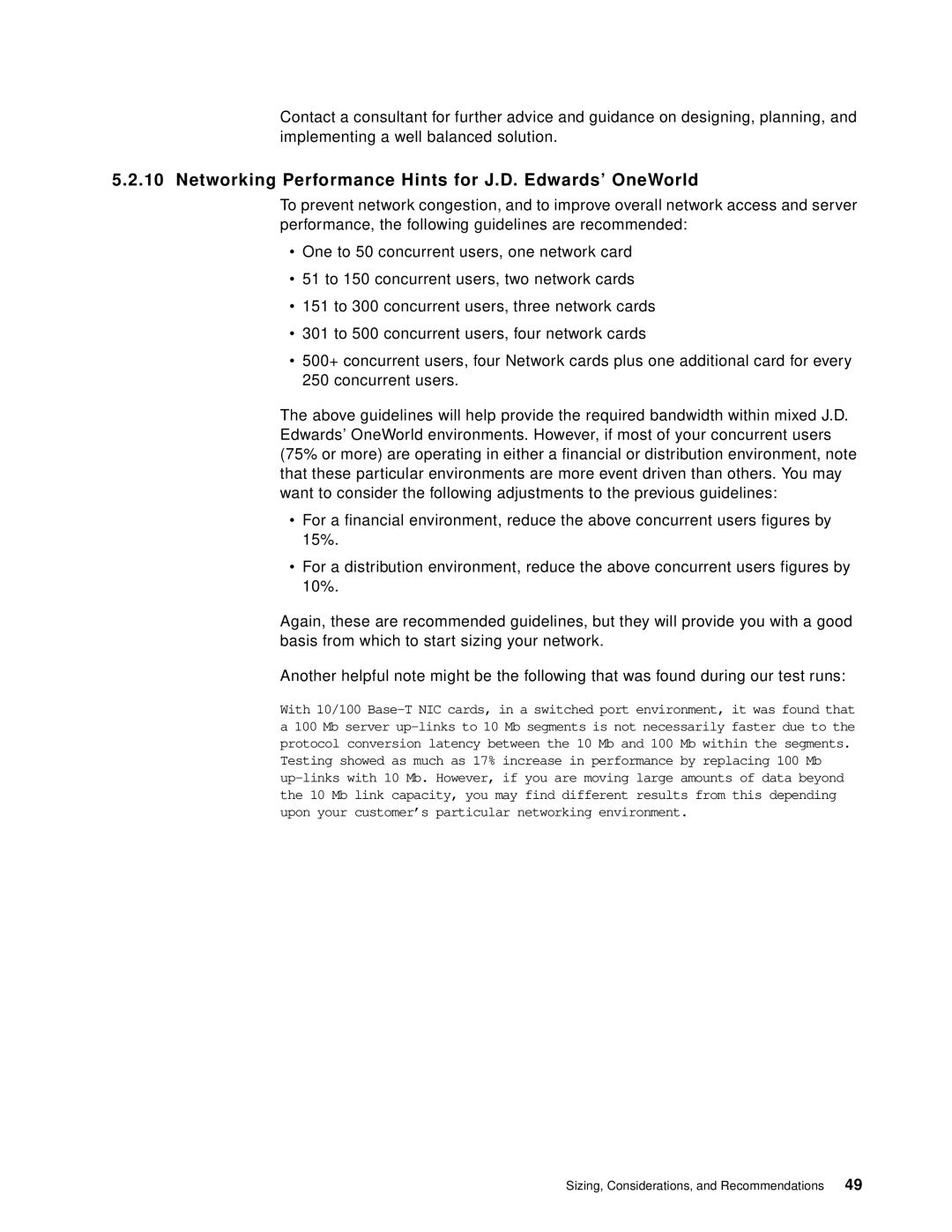Contact a consultant for further advice and guidance on designing, planning, and implementing a well balanced solution.
5.2.10 Networking Performance Hints for J.D. Edwards’ OneWorld
To prevent network congestion, and to improve overall network access and server performance, the following guidelines are recommended:
•One to 50 concurrent users, one network card
•51 to 150 concurrent users, two network cards
•151 to 300 concurrent users, three network cards
•301 to 500 concurrent users, four network cards
•500+ concurrent users, four Network cards plus one additional card for every 250 concurrent users.
The above guidelines will help provide the required bandwidth within mixed J.D. Edwards’ OneWorld environments. However, if most of your concurrent users (75% or more) are operating in either a financial or distribution environment, note that these particular environments are more event driven than others. You may want to consider the following adjustments to the previous guidelines:
•For a financial environment, reduce the above concurrent users figures by 15%.
•For a distribution environment, reduce the above concurrent users figures by 10%.
Again, these are recommended guidelines, but they will provide you with a good basis from which to start sizing your network.
Another helpful note might be the following that was found during our test runs:
With 10/100
Sizing, Considerations, and Recommendations | 49 |
